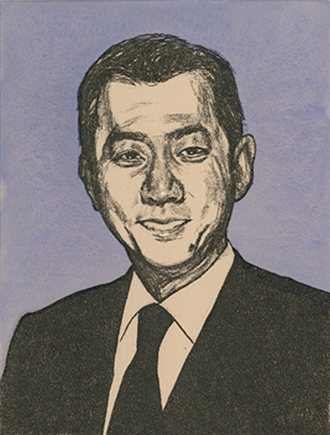 Chia Song Hwee, Temasek (Art by Edward Kinsella)Singapore sovereign fund Temasek International is reorganizing its management structure to prepare for “challenging global times,” the fund announced Tuesday.
Chia Song Hwee, Temasek (Art by Edward Kinsella)Singapore sovereign fund Temasek International is reorganizing its management structure to prepare for “challenging global times,” the fund announced Tuesday.
The S$266 billion (US$197 billion) fund said it has appointed Chia Song Hwee and Dilhan Pillay—current joint heads of investments—as presidents.
Dilhan will also take over as head of Americas from Boon Sim, who will be leaving May 1 after four years, Temasek confirmed. Boon—who previously led Credit Suisse’s global mergers and acquisition team—will continue as an advisor, mainly helping to build the fund’s US presence.
“Boon had indicated his desire to relinquish his executive position since the end of last year for personal and family reasons,” the fund said in a statement.
Temasek will also combine its sector and market investment teams under a single investment group and institute a new portfolio strategy and risk group to “better position ourselves in light of dynamic market conditions.” It will also create a sustainability and stewardship team, as well as promote four staff members to senior managing directors.
“Temasek thinks long term and acts as an owner in all that we do,” said CEO Lee Theng Kiat. “At a strategic level, the changes we’re making position the organization to protect and work the Temasek portfolio, and continue to build capabilities as we grow.”
Lee added that Temasek aims to “further build agility, alignment, and accountability,” as part of the fund’s globalization.
Temasek’s neighbor fund GIC also announced a management reshuffle last week in anticipation of “an investment environment of lower returns, increased volatility, and greater uncertainty.”
GIC named Group CIO Lim Chow Kiat as deputy group president, and President of Public Markets Jeffrey Jaensubhakij as deputy group CIO, effective June 1.
The sovereign fund created five new CIO positions to oversee each of its main asset classes.
Related: GIC Reshuffles Leadership, Adds New CIOs & Temasek Doubles Investment Activity
